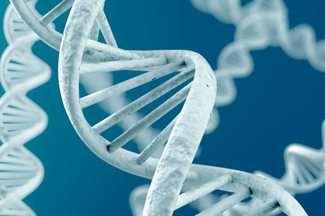Healthy Living
Precision Medicine: Changing the Way We Treat Cancer
Precision medicine is a concept that has been getting a lot of attention lately. Most recently, it captured headlines as President Obama announced plans for a Precision Medicine Initiative designed to expand the nation’s efforts to address complex diseases like cancer.

But what is precision medicine exactly? Wilmot Cancer Institute Director Dr. Jonathan Friedberg explains this innovation and how it is changing the way we treat cancer.
Broadly, precision medicine is an approach that identifies the characteristics of an individual patient and their disease, and uses those characteristics to guide treatment.
In cancer, for example, precision medicine means that we may look at the genetic make-up of a tumor to find presence or absence of specific mutations, or changes in the cancer’s DNA. Those mutations give us clues about how the cancer might progress and what are the optimal therapies for the cancer. Armed with that information, we can make more strategic decisions about a patient’s course of treatment. In more and more cases, we can even match the patient with a treatment designed to target a specific mutation.
Until some relatively recent advances in diagnostic technology and our understanding of cancer biology, our ability to treat cancer has been limited to a one-size-fits-all approach. With standard combinations of radiation, chemotherapy and surgery, we have been steadily improving cancer care. With precision medicine, we are beginning to accelerate these advances while sparing healthy tissue and preventing some of the serious, long-term effects of cancer treatment.
One Example: Breast Cancer
With breast cancer, for example, the precision approach begins at diagnosis. Once a lump has been detected — often through a screening mammogram — a sample of the tissue is taken through a biopsy. That tissue is examined by a specialized pathologist who identifies the cells as cancer. The pathologist then determines whether the cancer requires the hormones estrogen or progesterone to grow or whether it has too much of a protein called HER2 on its surface. These specific characteristics determine the optimal treatment plan.
Precision techniques in surgery and radiation therapy are also making a difference in breast cancer care. They are allowing us to reach the cancer while limiting damage to the surrounding tissue and organs. We can target radiation so that it avoids the heart and lungs, for example, and during surgery, we can more precisely define the margins of tissue that must be removed.
Leading the Way
At UR Medicine’s Wilmot Cancer Institute, we are leading the region in precision approaches to cancer care. We offer national clinical trials that are testing these targeted approaches in lung cancer and other tumor types, and developing our own precision platforms in diseases like chronic lymphocytic leukemia. With a gift from the Wilmot family and the Wilmot Foundation, we are recruiting a scientist who will focus on genomic research and precision medicine investigations. Moreover, our DiMarzo Cancer Survivorship program provides a custom approach for patients to life after cancer treatment.
The president’s proposal to devote $215 million to a Precision Medicine Initiative is exciting because we are only at the beginning in discovering the possibilities of precision medicine. Our nation’s 40-year investment in cancer research has allowed this exciting field to begin. I’m glad to see this important proposal for further investment with a focus on cancer, and am certain it will pay off for our patients in the near future.

Jonathan W. Friedberg, M.D., M.M.Sc., is director of UR Medicine’s Wilmot Cancer Institute. A hematologist/oncologist, Friedberg specializes in the treatment of lymphoma.

